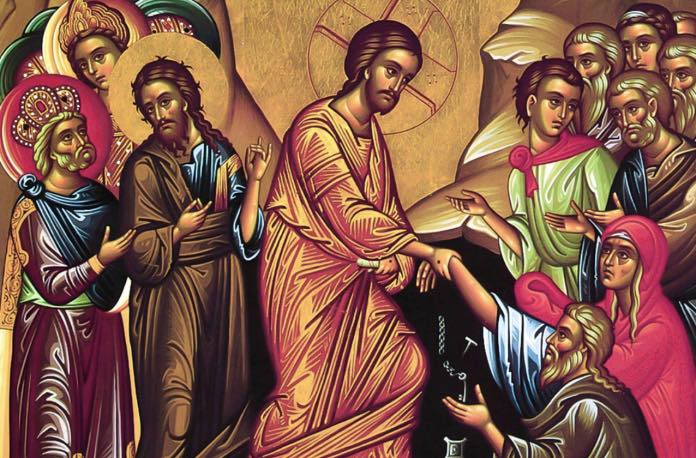On the Great and Holy Feast of Pascha, Orthodox Christians celebrate the life-giving Resurrection of our Lord and Saviour Jesus Christ.
This feast of feasts is the most significant day in the life of the Church. It is a celebration of the defeat of death, as neither death itself nor the power of the grave could hold our Saviour captive. In this victory that came through the Cross, Christ broke the bondage of sin, and through faith offers us restoration, transformation, and eternal life.
Traditions
After the midnight service, Greeks enjoy the mayiritsa soup, tsoureki (sweet bread), and red eggs. Before the eggs are eaten, there’s a traditional challenge called tsougrisma. Holding your egg, you tap the end against the end of your opponent’s egg, trying to crack it. The eggs are often made in very large quantities since the game continues the next day with even more friends and family.
The main focus of Easter Sunday is on traditional Greek Easter foods. While people this year may not be making a spit or cooking a roasted lamb, Greeks will enjoy the other foods presented during the Pascha feast.
Ovens are filled with traditional accompaniments and all the trimmings, such as patates fournou (potatoes roasted with citrus and oregano) and spanakotyropita (spinach and cheese pie). The meal is usually a lengthy affair, often lasting long into the night, sometimes up to four hours.
Icon of the Feast
One of the most symbolic of the Festal Icons of the Orthodox Church is that of the Holy Resurrection. In the center of this radiant event is Christ pulling Adam and Eve up from their tombs.
The gates of the Realm of Death are broken and thrown down. In the background stands the host of the departed, so numerous they cannot be depicted. Among them in the front of the multitude are some of the righteous dead, though now invigorated by the Resurrection.
King David and his son Solomon are seen on the left wearing crowns. Near the center is Saint John the Baptist. On the other side is Abel, the son of Adam and the first man to ever die. He wears a shepherd’s robe and has a cane. Many Icons of this subject depict large crowds with a few other recognizable prophets.
Christ is risen from the dead, by death trampling down upon death, and to those in the tombs He has granted life.
Sourced by: Spruce Eats
